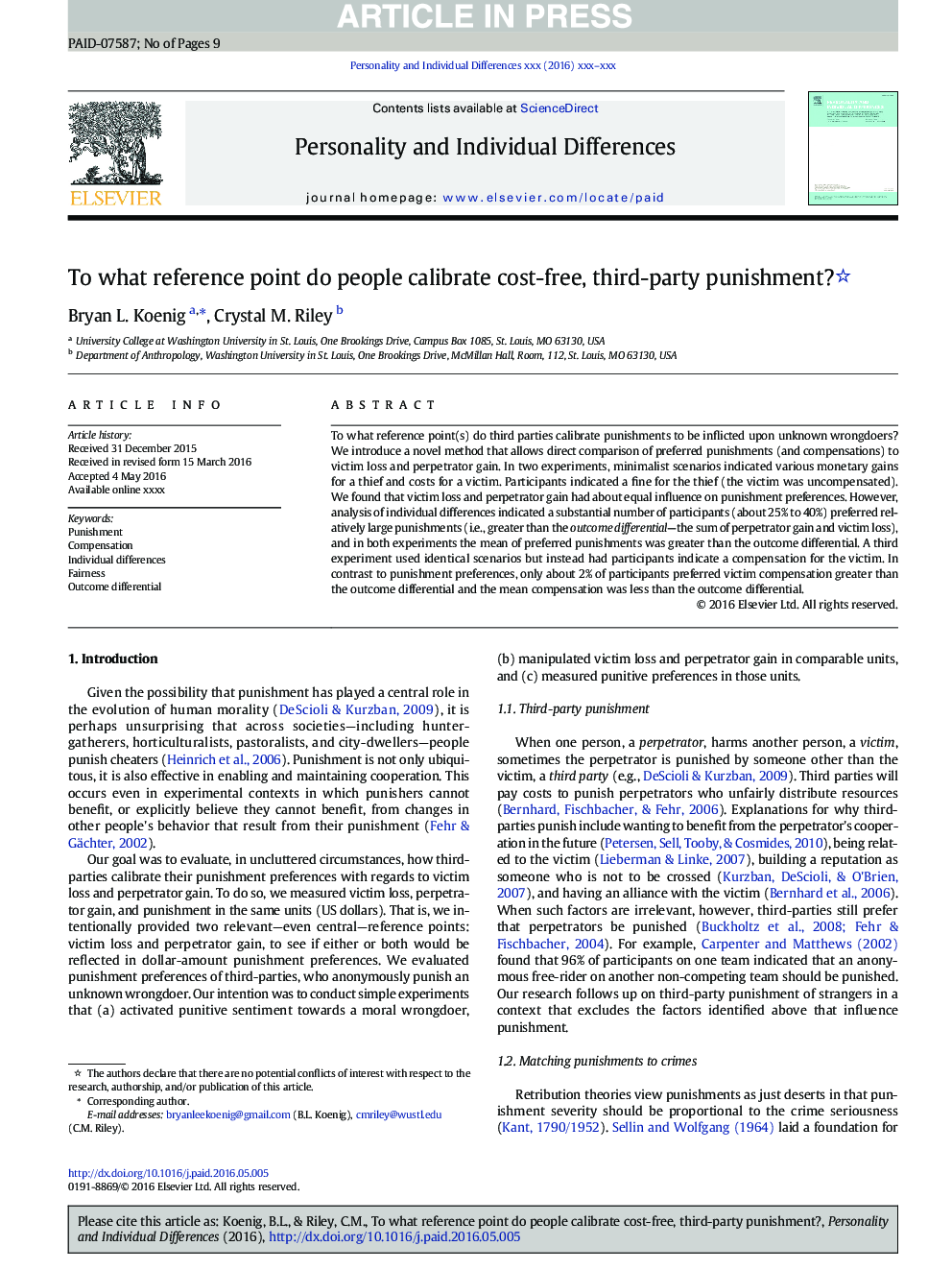| Article ID | Journal | Published Year | Pages | File Type |
|---|---|---|---|---|
| 5035847 | Personality and Individual Differences | 2017 | 9 Pages |
Abstract
To what reference point(s) do third parties calibrate punishments to be inflicted upon unknown wrongdoers? We introduce a novel method that allows direct comparison of preferred punishments (and compensations) to victim loss and perpetrator gain. In two experiments, minimalist scenarios indicated various monetary gains for a thief and costs for a victim. Participants indicated a fine for the thief (the victim was uncompensated). We found that victim loss and perpetrator gain had about equal influence on punishment preferences. However, analysis of individual differences indicated a substantial number of participants (about 25% to 40%) preferred relatively large punishments (i.e., greater than the outcome differential-the sum of perpetrator gain and victim loss), and in both experiments the mean of preferred punishments was greater than the outcome differential. A third experiment used identical scenarios but instead had participants indicate a compensation for the victim. In contrast to punishment preferences, only about 2% of participants preferred victim compensation greater than the outcome differential and the mean compensation was less than the outcome differential.
Related Topics
Life Sciences
Neuroscience
Behavioral Neuroscience
Authors
Bryan L. Koenig, Crystal M. Riley,
